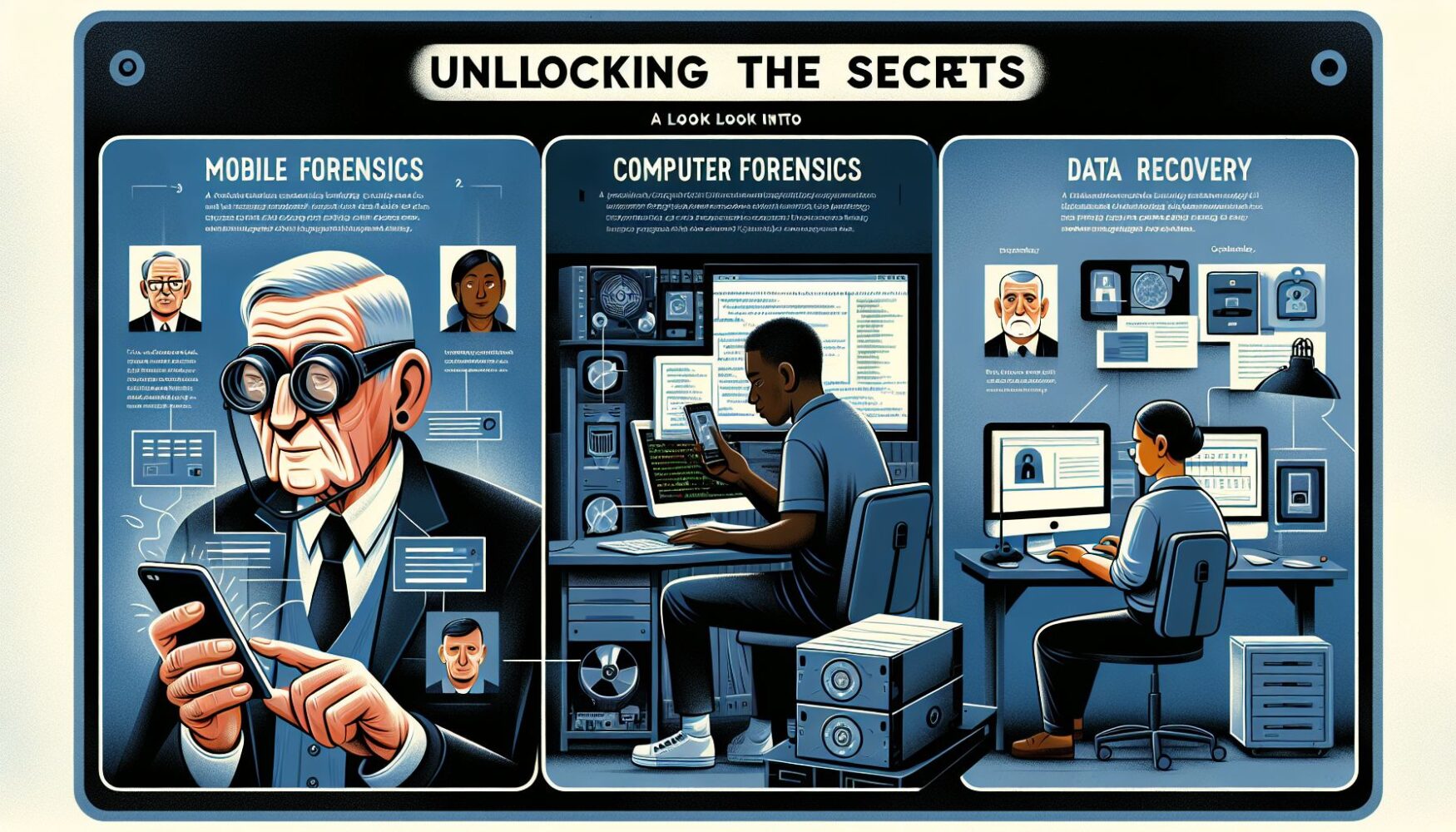In today’s digital age, technology plays a crucial role in every aspect of our lives. From smartphones to computers, we rely on these devices to store a vast amount of sensitive and confidential information. But what happens when disaster strikes, and we lose access to this vital data? This is where mobile forensics, computer forensics, and data recovery come into play.
Mobile forensics is the practice of collecting, analyzing, and preserving digital evidence from mobile devices such as smartphones and tablets. This process involves extracting data from the device’s memory, analyzing the information, and presenting the findings in a court of law or corporate setting. Mobile forensics is commonly used in criminal investigations, corporate espionage cases, and data breach incidents.
Computer forensics, on the other hand, is the process of investigating and analyzing data stored on computers, servers, and other digital devices. This can include recovering deleted files, uncovering hidden data, and tracking digital footprints left behind by users. Computer forensics is often used in cases of corporate fraud, intellectual property theft, and cybercrime investigations.
Data recovery is a specialized field within the realm of forensic technology that focuses on retrieving lost, corrupted, or deleted data from storage devices such as hard drives, USB drives, and memory cards. Data recovery experts use a variety of techniques, including software tools, hardware solutions, and forensic imaging, to recover data that was thought to be lost forever.
One of the key challenges in mobile forensics, computer forensics, and data recovery is ensuring the integrity and authenticity of the data being analyzed. Forensic experts must follow strict protocols and guidelines to ensure that the evidence collected is admissible in court, free from tampering or manipulation, and accurate in its representation of the original data.
In recent years, advancements in technology have made the field of mobile forensics, computer forensics, and data recovery more complex and challenging. With the rise of encrypted messaging apps, cloud storage services, and remote access tools, forensic experts must constantly adapt and evolve their techniques to keep up with the ever-changing digital landscape.
Despite these challenges, the importance of mobile forensics, computer forensics, and data recovery cannot be overstated. In today’s data-driven world, the ability to recover and analyze digital evidence is essential for law enforcement agencies, government bodies, corporate organizations, and individuals alike. Whether it’s recovering crucial data in a criminal investigation, uncovering evidence of fraud in a corporate setting, or retrieving lost memories from a damaged hard drive, the role of forensic technology is invaluable.
As we move forward into an increasingly digital future, the field of mobile forensics, computer forensics, and data recovery will continue to play a vital role in uncovering the secrets hidden within our devices. By staying up to date on the latest technologies, techniques, and best practices, forensic experts can ensure that they are well-equipped to meet the challenges of tomorrow and beyond.





